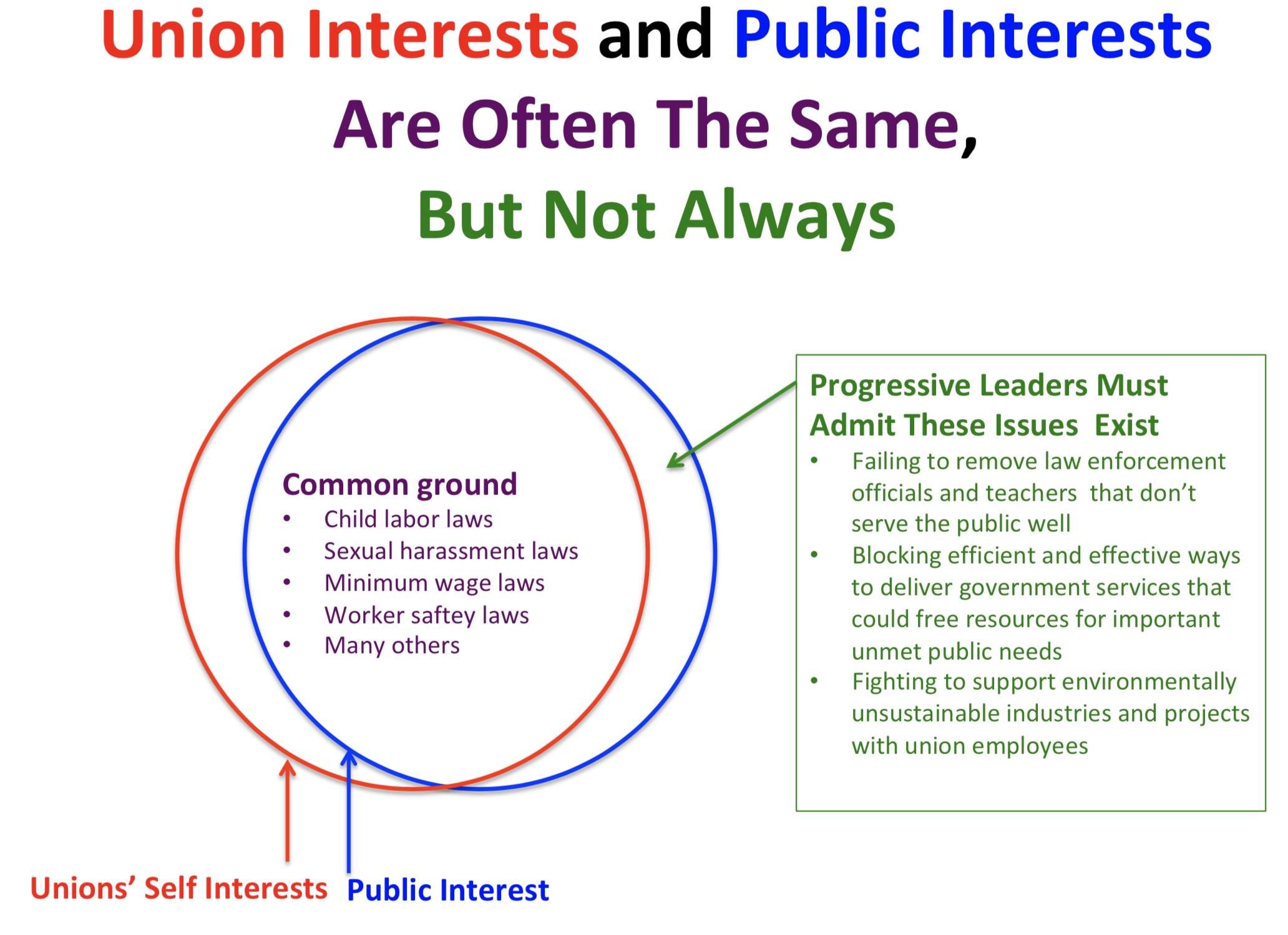I’m not a union basher. Overall, I’m a very progressive guy — a “socialist,” many would say. For years, I’ve lived in a union household and supported union causes. I understand and honor the important things unions have done for America – the 40-hour work week, weekends, child labor laws, sexual harassment laws, the minimum wage, civil rights laws, paid vacations, paid family and medical leave, workplace safety laws, and employer-based health coverage. I know unions have helped all Americans and the entire nation, not just union members.
I strongly disagree with those who say unions are no longer needed. In fact, during a time of the worst income inequality since 1928, we need more unionization in America, not less.
But just as I have a problem with Republicans who refuse to oppose businesses and billionaires when their interests don’t match the public interest, I have a problem with Democratic politicians who refuse to oppose unions in the relatively rare instances when their interests don’t coincide with the public interest.
A few weeks ago, I was reminded of this as I was watching part of the DFL State Convention online. I watched a parade of DFL politicians line up to deliver speeches about which of them was most unfailingly loyal to unions and their policy agenda. Their speeches made it sound as if unions are public interest groups, instead of self interest groups.
Unions are special interest groups. That’s not a criticism; it’s just reality. They promote what is good for their organization and members. In contrast, public interest groups — the League of Women Voters, Common Cause, the ACLU, the Environmental Defense Fund, Children’s Defense Fund, Consumer’s Union, others — promote what they believe is good for the public at-large. Public interest groups are not perfect, but their missions are broader than special interests groups.
For instance, the public needs things like accountable law enforcement officers, effective teachers, efficient government, and environmentally safe industries. Unions are often supportive of those things, but not always.
When the rules police unions demand inadvertently serve to keep abusive law enforcement officers harming vulnerable citizens, unions are not serving the public interest.
When the rules teachers’ unions demand inadvertently keep relatively ineffective teachers in public school classrooms, unions are not serving the public interest.
When public sector unions force governments to do things inefficiently, that effectively takes limited funding from addressing worthy unmet public needs, and is therefore not serving the public interest.
And when unions fight to maintain and expand environmentally destructive industries and projects, they’re not serving the public interest.

Again, union self-interests often overlap with the public interests. But there are important exceptions to that rule. The unwillingness of so many Democratic politicians to be independent from unions who aren’t always working in the public interest is one the party’s primary blind spots that prevents it from appealing to swing voters and enacting truly progressive policies.
